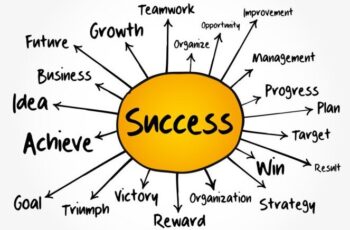Bulk purchasing is becoming a common practice in today’s marketplace. Companies sell their products through discount warehouses or using wholesale distributors. As a result, they gain access to large amounts of inventory. They can then offer discounts on these inventories to attract consumers.
What is a bulk order Bulk orders refer to a large quantity purchase usually done at wholesale prices. These purchases typically include food items, office supplies, and other goods sold in larger quantities than usual. Bulk orders can also cover certain services, such as cleaning or laundry.
While bulk buying can reduce overhead costs, it comes with its challenges. First, you need to create a plan for how you want your inventory to flow. Then, you need to build a strategy that considers where your inventory currently sits and how much supply you have left over from the last month. Finally, you need to monitor and control inventory levels.

Positive Impacts of bulk ordering on business organizations
Bulk buying saves time.
The process of purchasing items from multiple suppliers simultaneously eliminates unnecessary paperwork and makes transactions very efficient.
Bulk buying reduces costs.
When buying large quantities of goods or services, prices tend to drop considerably. This means businesses save money without spending more than they would if they bought smaller amounts individually.
Bulk sourcing improves the quality.
Buying in more significant amounts allows manufacturers and distributors to ensure buyers receive high-quality products and services.
Bulk purchasing leads to innovation.
Because companies don’t have to deal with the hassle of ordering each item separately, they often develop new ways to source their supplies. For example, some companies now use bulk purchasing to test new ideas before investing in them.
The High Upfront Cost Long-Term Satisfies Business Needs
Consider buying in bulk as an investment. Several benefits to buying in bulk enable you to significantly reduce the cost per unit if you are constrained by the enormous purchase costs you must incur quickly.
One aspect of the internet shopping module that offers long-term profits on the purchase order is bulk purchasing. If you want to expand your business and attract more clients, purchasing industrial items in bulk makes sense. Additionally, you can deal with sudden consumer needs increases without losing commercial opportunities.
Negative Impacts of bulk ordering
1. Bulk Buying Can Cause Overstock
Overstock occurs when there is too much inventory available at one time. This can happen if a supplier sells more than they need. It could also occur if a manufacturer produces more than their customers need.
2. Bulk Buying May Lead To Inventory Loss
Inventory loss happens when a company loses money by selling products that are not needed. For example, a retailer may sell items that were not ordered. As a result, the company will lose money.
3. Bulk Buying May Result In A Lack Of Quality Control
Quality control refers to ensuring that all items sold meet specific standards. If a company does not perform quality checks, it risks losing its reputation and customers.
4. Bulk Buying May Increase Costs
When a company buys in bulk, it increases costs. These additional expenses include shipping charges, storage fees, and taxes.
5. Bulk Buying May Reduce Profits
Profits refer to how much revenue a company makes after deducting all expenses from the total revenue. When a company buys in bulk without considering the consequences, it reduces profits.
The above points highlight why it is essential to carefully consider your options before starting a wholesale business. You must ensure that you do not make any mistakes that could lead to losses.
The Bottom Line
Bulk orders can assist you as a small- and medium-sized business owner save a lot of money. However, before purchasing, evaluate costs and ask other businesses for quotations (RFQ). Bulk purchasing is essential for companies whose procurement needs lean significantly towards consumables. Businesses could better manage their procurement needs by considering their working capital requirements and overall company objectives. A well-planned bulk buying system may play a strategic function for a firm.




